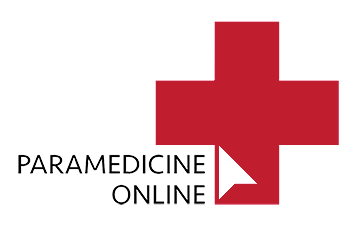Senior Resident Medical Emergency Patients Officer NSW
Senior Resident Medical Officer
Current Rotations/Networks (which may change from time to time) Positions will rotate between John Hunter, Maitland, Belmont and Mater hospitals
This SRMO position will rotate between ICU / ED / Acute Medicine and Medicine subspecialty (cardio, gastro or resp) all within the greater Newcastle area. There will be 20 positions on offer as part of this SRMO program.
Acute Medicine is rapidly developing both in Australia and overseas as a intersection of specialties focused on the inpatient, acute care of the unwell medical patient. Acute medicine concerned with the immediate and early specialist management of adult patients with a wide range of medical conditions who present in hospital as emergencies. This integrates experience and skills in Acute medicine (including subspecialties), Intensive Care and Emergency Medicine. This program seeks to developed practitioners experienced with these skills, even though they may wish to subsequently train in different specialties, including internal medicine, emergency medicine and intensive care.
Although these specialties vary, there is a common theme of acute, multidisciplinary, team focused care of unwell and frequently complex, multi-morbid patients. They incorporate multidisciplinary, team based workplaces, with strong senior medical leadership and support. There is potential for stress due to multiple conflicting demands in a busy environment, and ethical challenges and adverse outcomes that are often encountered.
This program seeks to recruit PGY3 doctors who have an interest in progressing to internal medicine, Emergency Medicine or Critical care medicine but either are unsure as to their preferred training pathway, want more generalist experience or feel they need more time at SRMO level before transitioning to trainee-level positions.
Upon completion of the Acute Medicine SRMO year doctors will be well prepared to apply for trainee positions in Basic Physician Training, Intensive Care or Emergency Medicine, and will also have acquired many transferable skills that will be useful in other training programs such as Pediatrics and General Practice.
The main purpose of the position is to provide medical services and to gain supervised experience in the management of acutely unwell patients. This training occurs prior to specialization.
Position Requirements
- MBBS or equivalent.
- Currently registered or eligible for registration with the Australian Health Professionals Regulatory Authority (AHPRA).
- Completion of two postgraduate years working as a medical officer with demonstrated competence.
- Demonstrated commitment to completing the Advanced Life Support course (ALS).
The Senior Resident Medical Officer is clinically responsible for:

- The initial assessment of patients, which should consist of an accurately documented comprehensive patient history, physical examination and the formulating of a management plan.
- Ordering investigations and requesting consults as appropriate.
- Reviewing of all pathology, radiology and other diagnostic reports and advising the Consultant and/or taking appropriate action.
- Charting of medications and fluids as required.
- Communication of the patients’ assessment and management plan with the medical and nursing staff and other members of the team providing care to the patient. Following up to ensure the plan is carried out and assessing its outcome
- Ensuring that all admissions, changes in clinical condition and deaths of patients are notified to the Supervising Consultant and the Admitting Medical Officer
- Initiating immediate treatment as appropriate where required, including cardio-pulmonary resuscitation.
- Participating in ward rounds, patient clinics, clinical hand over and ensuring all documentation including progress notes is completed.
- Communicating with, and supporting, the patient and their family.
- Ensuring effective discharges occur for the patient, family and other caregivers and an adequate and timely discharge summary is provided to those involved in after care including the General Practitioner and the Attending Medical Officer. The discharge summary should summarize the admission and describe the management plan.
- Ensuring all arrangements required for autopsy, death and cremation certificates are made expeditiously and appropriate support to other staff and family is given.
- Participation in a shift roster including after hours and weekend cover as required
- The Senior Resident Medical Officer may be required to provide supervision support to Resident Medical Officers and Interns during shifts rostered outside of normal working hours.
Respiratory Rotation
- Provision of care to inpatients in respiratory medicine, including patients requiring non-invasive ventilation.
Gastroenterology Rotation
- Provision of care to inpatients in gastroenterology
- Performing ascitic taps on inpatients and day stay patients.
Cardiology Rotation
- Provision of care to inpatients in cardiology, including Coronary Care Unit.
- Admission of patients to the Cardiology Unit
Acute Medicine (MACU) Rotation
- Admission of patients under medical specialties both in the MACU and ED, including evening and night shifts in MACU/ED.
Intensive Care Rotation
- Provision of critical care to patients in the ICU/HDU, or in other locations in response to a MET call or request for consultation.
- Accurate data entry into the ICU patient database
Emergency Medicine Rotation - Provision of emergency care to patients in the Emergency Department
Competency is expected to be demonstrated or developed in the following skills as a minimum:
- Venipuncture
- Peripheral venous and arterial cannulation
- Advanced (Adult) Life Support
- Urinary Catheterisation
- Interpretation of ECG
- Reading of Xrays
- Interpretation of more complex haematologic and biochemistry results
- Assessment and Management of the Deteriorating patient
- Communicating difficult information, including End-of-Life discussions.
The Senior Resident Medical Officer will be required to:
- Contribute to teaching activities and the supervision of Medical Students and Interns.
- Support research conducted within HNELHD, and to undertake relevant research to facilitate adequate competencies within the department they are rotating through.
- They should attend and participate in, all educational activities and departmental teaching and Clinical meetings as advised.
- The SRMO is expected to obtain proficiency and maintain competence in Basic and Advanced Life Support skills, and preferably attend at least one day at the HNE Skills and Simulation Center.
- Provide evidence of continued professional development and commitment to self- education.
- Act in accordance with the HNE Health Values Charter and the NSW Health Code of Conduct.
- Participate in relevant patient safety and quality education and deliver services in accordance with the National Patient Safety and Quality Standards, Work Health & Safety Act and NSW Health risk management frameworks.
- Ensure that work is conducted in a manner that demonstrates values of cultural respect in accordance with HNE Health’s Closing the Gap strategy.
- Actively work to improve workplace safety within HNE Health by:
- Performing work in a manner that is safe and does not pose a risk to others
- Complying with all WHS policies, procedures and education provided by HNE Health including infection control and manual handling
- Reporting any identified safety matters
- Speaking up about safety issues, including speaking to colleagues who are observed to work in an unsafe manner
- Actively model a workplace culture of safety in keeping with Excellence and develop mechanisms to identify and mitigate workplace safety issues.
The Senior Resident Medical Officer will be required to undertake orientation and mandatory training to:
- Gain an understanding of the code of conduct, organizational values, goals and ethics, and the behaviour and standards expected by the Public Health Organization.
- Gain knowledge and develop skills to work in a manner which promotes their own health, safety and security at work, including information relating to infection control and needle-stick injury.
- Gain an understanding of child protection legislation policies and responsibilities associated with notifying and reporting issues about child protection.
- Understand the principles of waste management and the local processes in place which are designed to reduce waste.
- Gain an understanding of the administrative procedures relating to the performance of their work, and ways to perform their job in an efficient and effective manner;
- Develop an understanding of the legislative and industrial context in which they work.
- Gain information on the Health Service Employee Assistance Program (EAP).
- Gain education and training in the minimization and management of aggression, Occupational Health and
- Safety, Fire Safety and quality improvement processes.
Local Background & Environment
- Greater Newcastle Cluster includes John Hunter Hospital (including John Hunter Children’s Hospital and the Royal Newcastle Center), Belmont Hospital, Calvary Mater Newcastle, Mater Mental Health (including a PEC) James Fletcher Hospital and facilities at Waratah, New Lambton, Newcastle, Wallsend, Windale, Toronto, Nelson Bay, Raymond Terrace and Morisset.
- Hunter Valley Cluster includes Maitland Hospital and facilities at Cessnock, Kurri Kurri, Singleton, Dungog, Muswellbrook, Denman, Scone, Murrurundi, Merriwa, East Maitland, Rutherford, Woodberry and Beresfield.
- Lower Mid North Coast Cluster includes Manning Hospital and facilities at Taree, Forster, Bulahdelah, Gloucester, Wingham, Hawks Nest/Tea Gardens, Harrington and Stroud.
- Peel Cluster includes Tamworth hospital and facilities at Gunnedah, Manilla, Walcha, Barraba, Nundle, Walhallow, Werris Creek, Quirindi Premer and Tambar Springs,
- Tablelands Cluster includes Armidale Hospital and facilities at Inverell, Tingha, Warialda, Bundarra, Glen Innes, Guyra, Emmaville, Tenterfield, Uralla, Ashford, Bundarra and Bingara
- Mehi Cluster includes facilities at Moree, Narrabri, Boggabri, Mungindi, Boggabilla, Toomelah, Wee Waa, Gwabegar and Pilliga.
HNE Health services are supported by district-wide Clinical Networks and Streams, which link health professionals together to work collaboratively, improve service delivery and ensure equitable provision of high quality, clinically effective care.
Hunter New England LHD Profile:
- Provides care for a population of more than 873,741 people, including 23 per cent of the state’s Aboriginal and Torres Strait Islander population
- Employs 15,750 staff, including 1700 medical officers
- Is supported by 1600 volunteers
- Spans 25 Local Government Areas
- Spends $1.7 billion per annum
- Has a head office in Newcastle and a regional office in Tamworth
- Is unique, in that it is the only local health district with a major metropolitan center (Newcastle/Lake Macquarie), as well as a mix of several large regional centers and many smaller rural centers and remote communities within its borders
Candidates must meet the essential experience and qualifications to be considered for this position. If you satisfy all the applicant requirements and think you can make a difference, please apply below.
[maxbutton id=”7″ url=”https://au.indeed.com/viewjob?jk=0323e1e4cf6a5a19&tk=1co60j5m4107j003&from=serp&vjs=3″ text=”CLICK APPLY NOW “]

